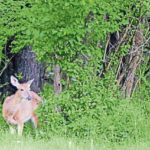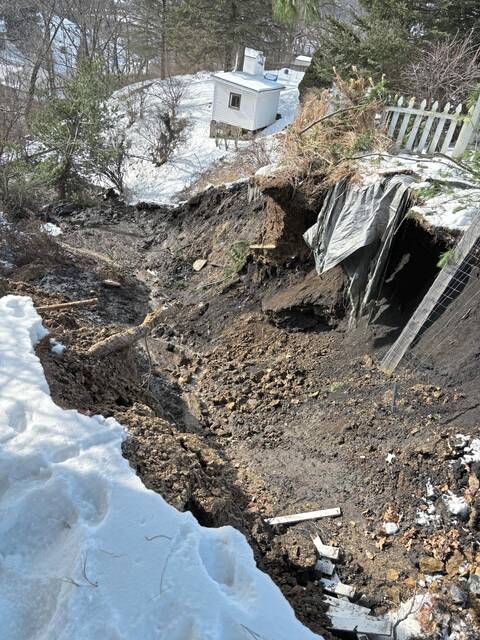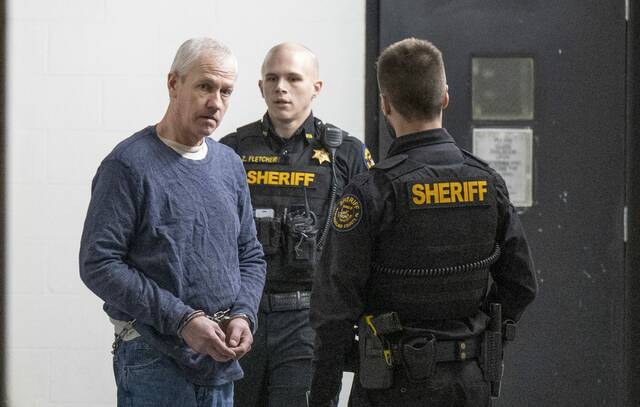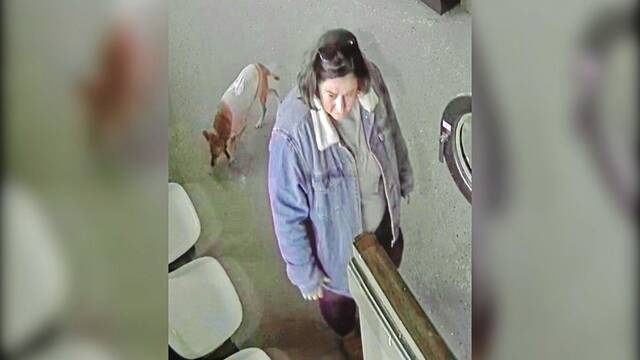A Western Pennsylvania group representing a Louisiana researcher says its timeline for “curing” chronic wasting disease (CWD) has been slowed by lack of funding and political considerations.
The North American CWD Project, led by Delmont resident John Eveland, was founded last year as a way to support the research of Dr. Frank Bastian, a former professor of neuropathology at Louisiana State University and currently a gratis research professor at the University of New Orleans.
Bastian is known for his groundbreaking research into transmissible spongiform encephalopathies (TSE), which are responsible for a family of diseases including CWD, mad cow disease and Creutzfeldt-Jakob disease in humans.
First detected in Colorado in 1967, CWD has been confirmed in 250 white-tailed deer in Pennsylvania, after first being detected here in 2012 at an Adams County deer farm. The disease is fatal in deer and elk.
State officials have promoted a variety of ways to control CWD, including enlisting the help of hunters, forming Disease Management Areas and, most recently, awarding research grants.
Bastian’s research is considered outside the mainstream because he doesn’t subscribe to the theory that CWD is caused by malformed proteins known as prions, Eveland said.
“(He has determined that prions) are not the underlying cause of CWD but are, instead, byproducts of the bacterial infection, which uses the proteins as a receptor mechanism to enter brain cells,” Eveland said.
Bastian’s findings were announced in Harrisburg a year ago as a medical breakthrough and a possible cure for CWD. At the news conference, Eveland said the North American CWD Project was joining forces with the Unified Sportsmen of Pennsylvania, the Allegheny County Sportsmen’s League and other groups to support the work of Bastian through fundraising.
“With Dr. Bastian’s discovery and ongoing research, we now are set on a path to end this disease and impending nightmare in Pennsylvania, across America and throughout the world,” Eveland said at the time.
Supporters of Bastian hoped to have a field test kit ready for hunters to use this year.That development is now at least a year behind schedule, Eveland said in a recent interview.
“Pending the acquisition of samples (lymph nodes, brain tissue, etc.) and funding … within a year we will be producing diagnostic test kits that hunters can use to test deer in the field, at the point of harvest, and know within minutes whether or not the animal is infected,” he said. “Hopefully, we can start putting the disease into remission.”
The kits would be used first in Pennsylvania as part of a pilot project, he said.
Eveland said Bastian also is a year or two away from developing a CWD vaccine for captive deer and an oral vaccine for wild deer and elk. Training and distribution of the test kits and vaccines would be done from a facility near Pittsburgh, he said.
The Bastian partnership so far has raised about $100,000 from private sources, Eveland said. “Enough to keep the lights on,” he said.
Bastian supporters in Pennsylvania hoped to receive grant money from a program announced by the Pennsylvania Department of Agriculture in November. On Tuesday, they learned they were not among the research projects awarded $1 million in grants.
The recipients — two University of Pennsylvania professors and a San Diego-based protein chemist — will use the grants to explore the “potential of working dogs to detect CWD in deer feces” and to develop live-animal tests to detect CWD, according to the Agriculture Department.
Although Eveland said his group had submitted a grant proposal by the Nov. 30 deadline, Agriculture Department spokeswoman Shannon Powers said the Bastian proposal arrived Feb. 21.
“Someone dropped off the proposal on his behalf,” she said, adding that guidelines stated that applications were to be submitted electronically through the Department of Community & Economic Development’s website.
State Rep. David Maloney, R-Boyertown, said he was disappointed the Bastian group didn’t receive grant funding from Pennsylvania.
“I’m the reason that $1 million was in the budget,” he said. “It was earmarked mostly for research into hunter test kits, so the sportsmen would be able to test their game in the field. Not only did the administration not want this, they found a way to divert (the funding) to their special projects.”
Maloney, a supporter of Bastian’s research, hosted the news conference during which the Bastian partnership was announced.
“For years, the (Pennsylvania) Game Commission and the Department of Agriculture have been telling us that prions are the cause of chronic wasting disease,” Maloney said last year. “Yet, despite decades of efforts, we are no further along to finding a cure than we were when CWD was first discovered some 30 years ago. It seems to me we should welcome a different approach while current efforts continue to be pursued. A closed mind has never solved anything.”
Interviewed by Maloney at this year’s Farm Show, Pennsylvania Agriculture Secretary Russell Redding thanked Maloney for the $1 million budget appropriation, the first of its kind for CWD research, and stressed the importance of getting “the right researchers involved with CWD.”
“I know that we’ve been at odds over how to address (CWD),” Redding told Maloney.
The original Agriculture Department request for proposals included the following research topics: diagnostic and live-animal testing methods, rapid field testing to prevent consumption of contaminated meat, oral and injectable vaccine development, environmental and genetic causes, and “biosecure” disposal and disinfection methods.
Eveland said his interest in Bastian’s research is an outgrowth of his work developing wildlife management plans for Pennsylvania’s three big game animals — deer, black bear and elk.
“I decided to get involved because of past experience with a similar disease in elk,” he said. “I discovered Dr. Bastian, who had been working out of a small lab in a segment of LSU. I began discussions with him that lasted for about a year, while I evaluated his research and realized it was a breakthrough discovery in CWD.”
Kip Adams, director of conservation for the Quality Deer Management Association, said he believes the talk of a breakthrough by Bastian is overblown.
“I wish so badly that Dr. Bastian’s theory was correct. The vast majority of people working on this … view his theory as being incorrect. The preponderance of evidence suggests it is a prion disease,” Adams said.
“If it was a bacterium, as he suggests, we would have a much better chance of stopping the disease and keeping it from spreading,” he said.
The QDMA is based in Georgia, but Adams lives in Knoxville, Tioga County, and follows the Pennsylvania scene closely. He said Bastian’s work is still welcome.
“Research is always good,” he said. “There’s still an opportunity with his work that he may have a breakthrough to help in this fight.”











